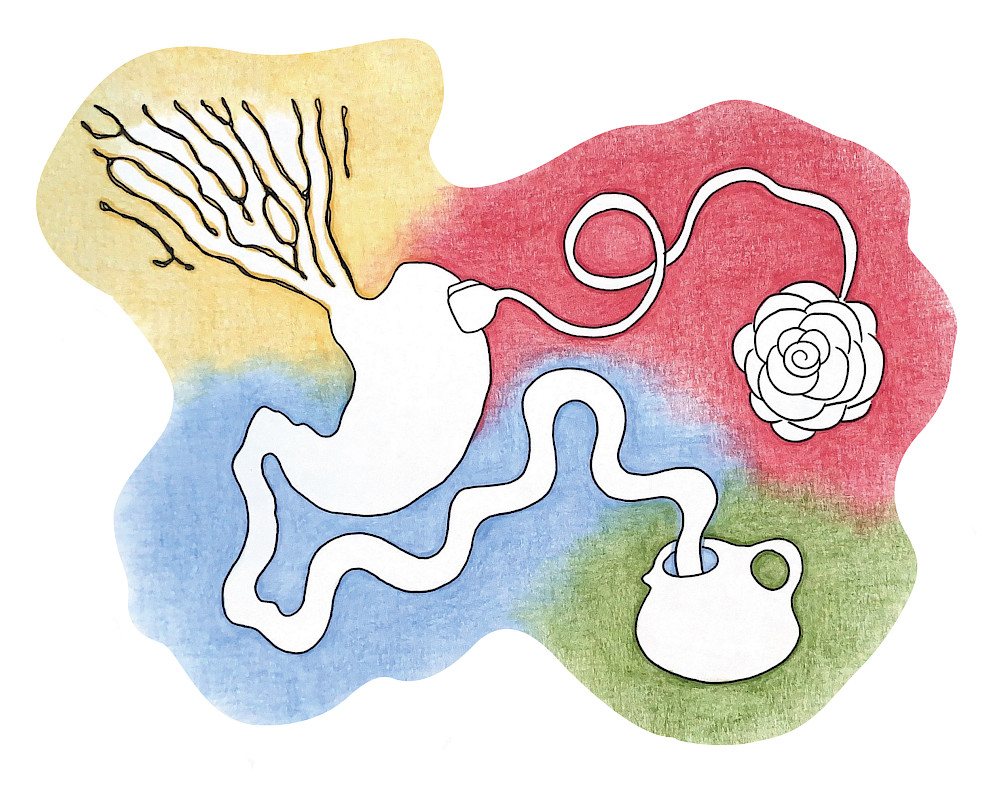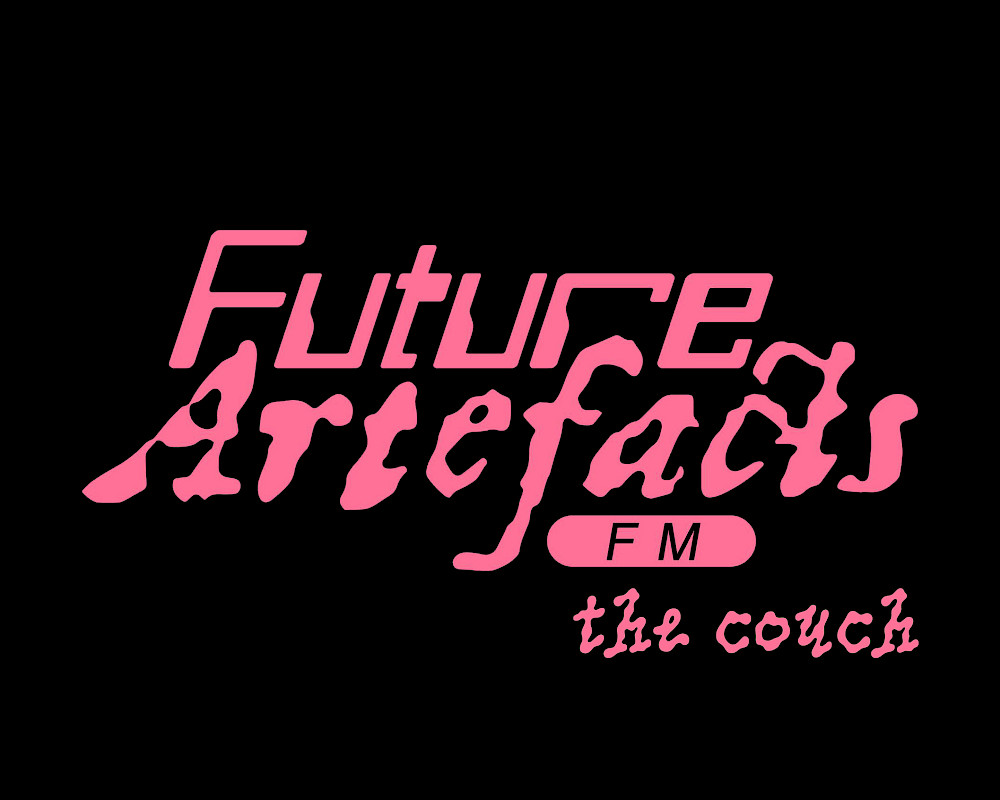essay
POV:
Ginevra Petrozzi
Ginevra Petrozzi (Rome, Italy) is an interdisciplinary designer and artist currently living and working in The Netherlands. Her work explores contemporary issues around care, futurity, and algorithmic governance. In this framework, she took the role of a “digital witch”, reclaiming the archetypal role of the sorceress as a healer, and as a political rebel.
video
POV: Time To Influence Your Targeted Ads
"Define your 'perfect future' in positive and using the present tense (ex: not ‘I would like to do’, but ‘I do’). Imagine that you have reached your goal overnight: tomorrow morning, how do you realise that the transformation has taken place?"
Rustan Söderling

music
Singing To The Machine: Orpheu The Wizard
This mix by Orpheu The Wizard consists of a selection of songs loosely revolving around the themes of Mystics of the Chthulucene. First up in a new mix series, where artists, selectors, and music geeks connect sounds to a broader and recurring artistic research theme that weaves through The Couch.

essay
Are TikTok Healers Contemporary Quacks or Re-risen Witches*?
Are the countless self-proclaimed ‘healers’ giving medical advice on TikTok quacks? Or are they a sign that witches* have reclaimed their space in the health field, reviving lost knowledge and offering the care that mainstream healthcare still fails to provide?

essay
The mindless sc/troller
If the postmodern (digital) experience is a similarly disorienting experience to that of the modern flâneur, then is it possible to adopt the same approach to the web as to the city, where the mind can freely wander and transform?

essay
Mystics of the Chthulucene
Cthulhu – H.P. Lovecraft’s science fiction monster – lurks under the surface of the ocean as an elemental deity. We must wonder what lurks beneath the surface of the systems known as AI.
22
min read

"With this essay, my open invitation is to harvest the magic in words, in spelling, to invoke kinship with technology."
There are oral cultures of folk magic, like my Polish grandmother's, that have survived violence. Even broken by generational trauma, even broken by displacement (WWII caused my grandmother and her mother to be forcibly removed to a new city, with no father, with lost roots), oral knowledge is able to perpetuate something more, something other than what is offered in societies increasingly subject to inequality, polarisation and extraction. Hedge magic, superstition, manifestation, and now: speaking to the algorithm are ways to incant. The idea of invoking kinship even with something so insidious as a recommendation algorithm could be a way to bring balance back to the extractive relationship we have with big data. Can we gain power - not over AI, but with it?
In this essay, Ginevra Petrozzi makes the case for a complicated relationship between ourselves and the artificial intelligence tools that guide us through our lives. It’s the inaugural essay in a yearlong artistic research project called Mystics of the Chthulucene (more on that later) that looks at the relationship between magic and artificial intelligence. Here, Petrozzi examines her own divination practice, where she ‘reads’ smartphones as Tarot cards. She shows how people ‘hack’ the recommendation algorithms that appear to be looking into our unconscious minds. We are being manipulated : even if we proudly refuse cookies and deny apps the right to track us, we still have to actively beat back the never-ending tricks that big data has to harvest our information. In other words, if an algorithm is doing the manipulation, it feels scary and problematic - could it be dark magic? But when we use that 'raw power' to conduct the prediction ourselves, it suddenly becomes safe magic. The stories and myths we construct around the technologies we don’t understand can help us navigate the obscure and even violent power of artificial intelligence.
Petrozzi has also made POV: Time To Influence Your Targeted Ads, an accompanying video of the performance she created during a residency and workshop in Rome last year.
Editor’s note by Maia Kenney
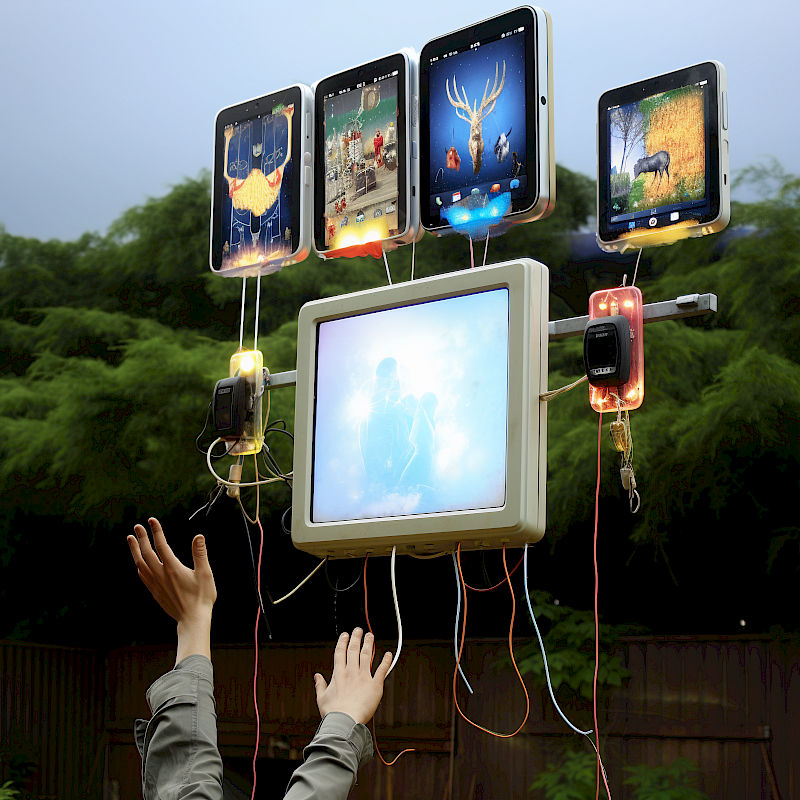
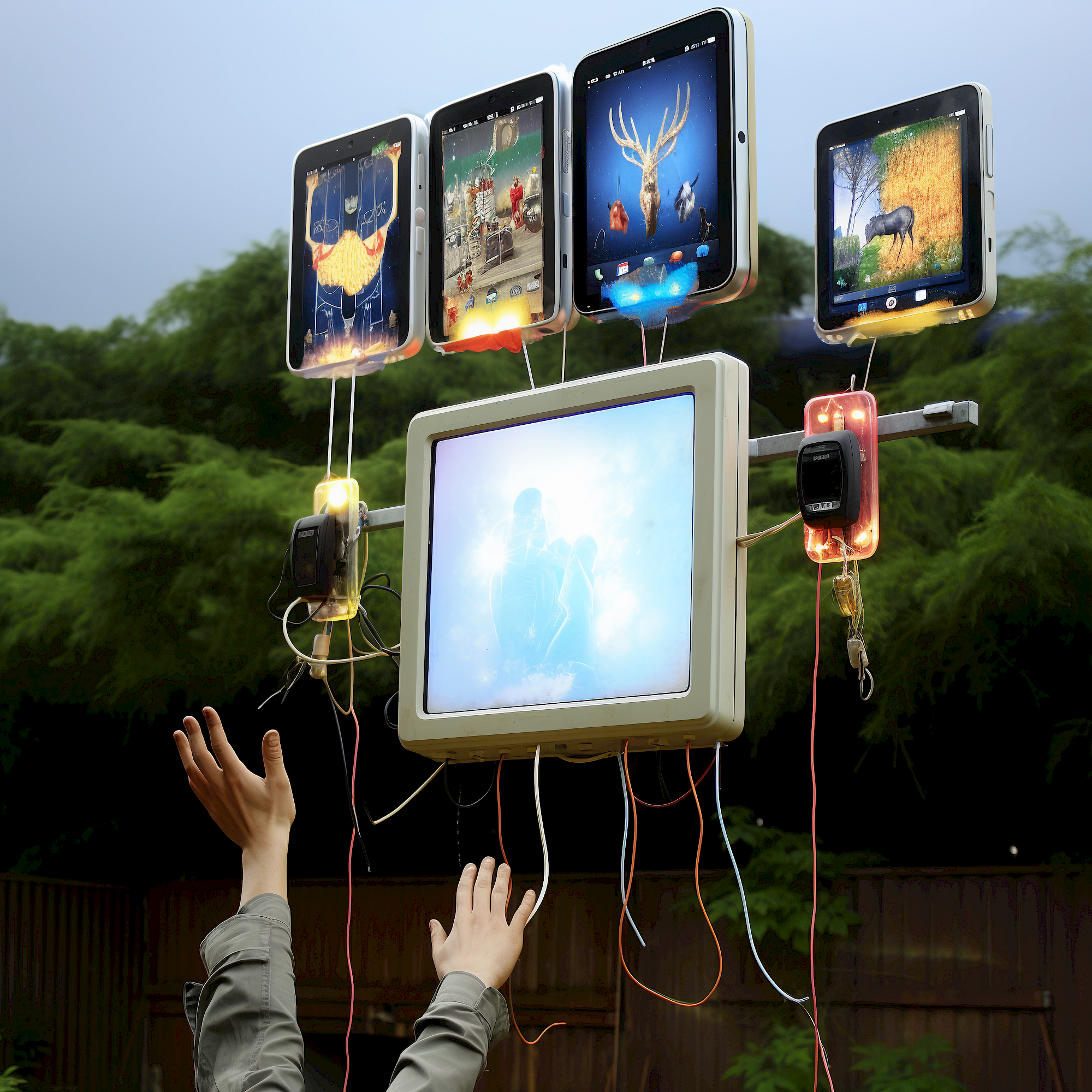
I am never out of sight.
Therefore I must tell the truth.
I hold my word tight to my breast. (1)
Some of these things are always looking at me
I was born in Italy, and grew up between a big metropolis and a small village of a thousand inhabitants in the Etruscan countryside. In these places, Catholicism and magic are deeply intertwined, and magic knowledge has permeated culture through being passed on by generations of women in their domestic spaces. For example, the evil eye, also called Malocchio, is an esoteric concept unrecognised by the Church, but in many Italian villages the Holy Trinity is evoked to have it removed. Within my family, there has always been a certain predisposition to treat objects as magical allies, artefacts creating around themselves a set of ceremonies that have little to do with doctrine. My mother was a doctor, a woman of science, yet the strongest memories I have of her are the ones in which she is praying - doing a fioretto (2) - or throwing salt three times behind her shoulders whilst reciting a short phrase against bad luck. If there is one thing I gathered from her experience, it is that reality has multiple entry points.


This sort of personal animism has been unconsciously passed on to me, and here I find myself digesting it, living my secular reality as a “digital witch” (3), or a Data Therapist, for the sceptics. In my 2021 project Digital Esoterism, I began to analyse people’s algorithmic predictions using the methodology of Tarot readings. Tarots, as other divination tools, respond to the threat of magical thinking in which one’s soul is always at stake, and one’s future already decided. According to Ernesto De Martino, one of the first scholars to study the concept of magic from an anthropological point of view, “Man has trusted rhythmic celestial repetitions precisely to protect the soft, liable calendar of his heart, and to be able to inscribe the precarious times of his hearts unto the more stable times of the sky”; it is the risk of ephemerality that moves humans to find alternatives (4). Divination tools served as a remedy to the unknowability of fate. I had already been reading Tarot for quite a while, until one day I saw a Tarot card and my smartphone - which was showing a suggested post from Instagram - side by side and I couldn’t unsee the similarities.
An algorithmic prediction / A Tarot card:
-has a mystical quality;
-operates through unknown processes;
-predicts your future;
-only an expert can control it;
-can change the way you behave in the present;
-can be scarily accurate…


The practice of magic is defined by Benjamin Wolman as “the art of producing desired effects and control of natural phenomena through various techniques such as prayer and incantation” (5). Magical thinking constructs the cosmos as an interconnected realm, in which there are certain invisible higher forces that can obstruct or interfere with human intentions and desires. Practising magic means trying to control, influence or re-direct these forces. Now, observing the digital realm under the control of Surveillance Capitalism, it seems rather difficult not to find ontological connections with the phenomenon of magical thinking. The algorithmic entity seems to function in a similar omniscient way in the act of deciding one’s destiny and possible futures. What we receive under the elusive shape of something to buy, someone we should follow, somewhere we should visit, are in fact possible futures.
Through the readings of Digital Esoterism, I can say I’ve seen and interpreted a multitude of feeds; spanning suggested posts, targeted advertisements, For You pages, suggested songs for playlists and suggested words from the predictive keyboard. I have created a mind portfolio of “cards” that instead of sharing cups, swords, Empresses and Hermits, share archetypes made of digital content. Inevitably, I also became the person to whom close friends can send their uncanny suggestions (your loyal Data Therapist).


Finance Bros killed magic
Once, while I was presenting one of my Tarot readings, a man decided it was important to let me know that “Algorithms are real, and this” - referring to esoteric practices - “this is bullshit”. Whatever I was doing was the kind of thing his wife would believe in. His remark did not surprise me or shock me; in fact, I was glad I had the wife on my side. It’s not a secret that this type of knowledge, especially in Central Europe, circulated between women and/or gender non-conforming folk. And now, almost opposed to that movement, the main believers of the new formed cult of algorithmic neutrality, NFT’s, and Data governance seem to be the so-called Finance Bros. Or, in less millennial terms, capitalists. Long ago, the predecessors - in mindset if not genes - of the Finance Bros were probably the ones to condemn animism and trash the whole set of knowledge resulting from it. Silvia Federici brilliantly illustrates the historical mechanisms of the refusal of magic throughout time stating that “Eradicating these [magic] practices was a necessary condition for the capitalist rationalisation of work, since magic appeared as an illicit form of power and an instrument to obtain what one wanted without work, that is, a refusal of work in action [...]”, linking in fact the beginning of Capitalism to the suppression of certain others (6).


What struck me the most was that the man who interrupted me could not see that algorithms operate in a way not so different from actual ancient future-predicting practices. The “real” vs. “bullshit” was defined in a very clear, non-negotiable way. Quoting Flavia Dzodan from her talk “Algorithms as Cartomancy”:
Our algorithms, the entirety of the systems that form the backbone of our technologies and cultures operate on these pseudoscientific paradigms. And this is why I consider algorithms to be a form of esoterica, not different than cartomancy, astrology or prediction by sacred geometry [...] also because algorithms are generally viewed as infallible oracles that predict outcomes based on operations that remain inaccessible to the untrained eye (7).
As mythological protagonists, algorithms and systems of prediction create narrations around them, maybe without us even noticing. Users are increasingly inhabiting digital spaces; creating their own cosmogonies, rules and myths’ effectively manufacturing new behaviours; and in some ways creating small utopias that coexist within the algorithmic violence.
When Devices Were Listening To Us (mythology)
Do you remember what you were doing when they introduced the new Data Policy?
Amongst the many stories and urban legends the digital realm has spawned, it’s worthy to highlight one that in my opinion has turned into a proper modern mythology, When Devices Were Listening To Us. Moreover, as a proper myth it has propagated through oral narrations, multiplied and modified with every new elaboration. It’s been a while since targeted advertising, suggested posts and For You pages were a novelty in the digital realm. In its genesis, I remember many conversations amongst family and friends, in which exchanging what type of content we were being recommended was a common practice. The feeling of disbelief and surprise only lingered for a while, until it just became part of the everyday experience. Digital users can no longer imagine an internet that is not customised; one that tries to perfectly fit one’s identity, beliefs, social circle and desires. Maybe soon we’ll also stop being surprised at all by its uncanniness. If, on the one hand, this could bring acceptance and pacification, on the other, it could just lead to apathy and the inability to recognise violent, extractive behaviours.
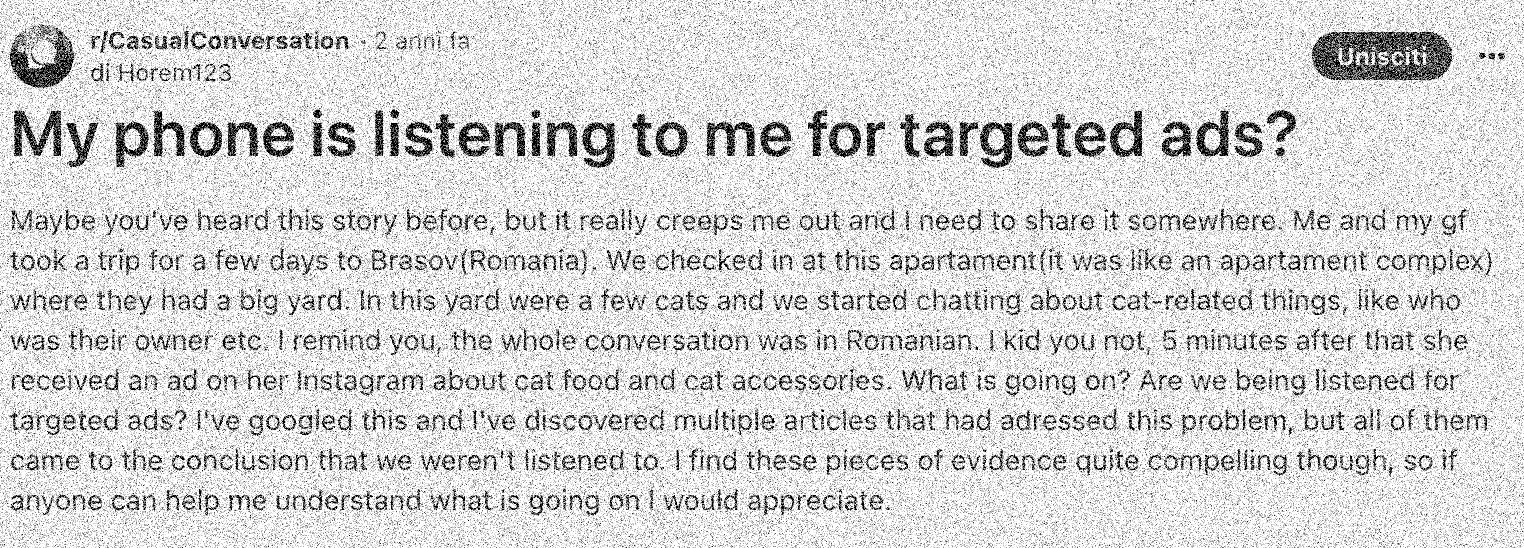
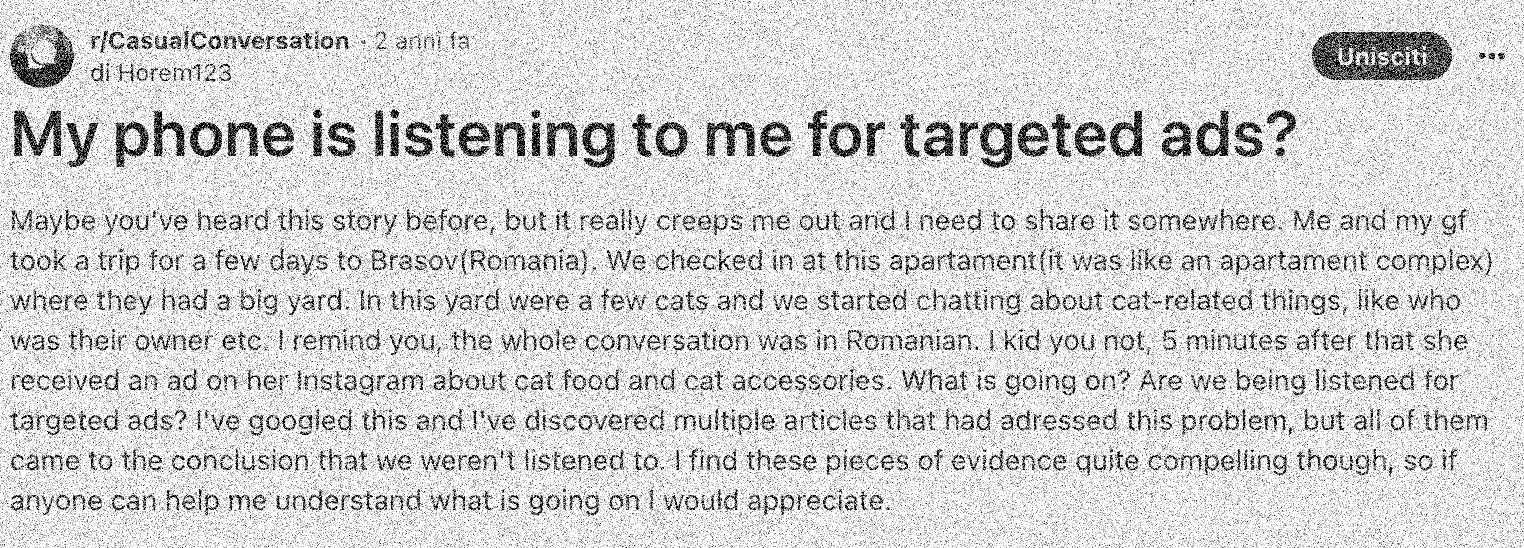
Researching around the topic of targeted advertising, opinions may vary. It is certain that we receive suggestions based on locations, what we looked for in search engines, what our friends searched, the Wi-fi we are connected to, our age range…Yet there is no true proof that our voices are being monitored. However, it’s not really important whether our devices listen to us or not, or if they can “read our minds”: this myth has already successfully permeated how we view and interact with these systems. The attitude that humans have produced towards devices proves that the digital realm - under Surveillance Capitalism - has acquired its own animism, and today is operating - to a certain extent - under the rules of magical thinking.
Elena Esposito, in her lecture “Future and uncertainty in the digital society” highlights this similarity, stating that “The attitude around big data is not so new. [...] The idea was that in ancient times the future appeared to be unknowable to humans, but not to divinity, not to God. As for today the future appears to be unknowable to humans but not to the algorithms” (8). This can be explained by distinguishing the temporal dimension of deity and man in ancient times, respectively Aeternitas and Tempus. For the concept of Aeternitas you could know past, present and future, with no distinction between the three. To an all-knowing deity, all events are accessible, because all events are contemporary. But human beings lived in Tempus, where the present immediately disappears. In its ontological dimension, the future was not less determined than the past, but only deities could have access to it. Have humans started to think of algorithmic temporality as Aeternitas?
Esposito's reflection shows how humans have maintained the same attitude towards a technology (Tarot cards being also a technology) that promises a solution to uncertainty. And this is what I call Digital Esoterism. Within this attitude, Digital Esoterism produced new magical practices that answer to new all-knowing entities.




The camera-cover and the vase with eyes both originate from the assumption that the gaze of others can produce certain outcomes. For the camera-cover, the gaze is that of our smartphones, which can actually “see” us and spy on us. For the vase, in its apotropaic function, to represent the eyes is to ward off possible gazes with malintentions.
It’s Time To Influence His Targeted Advertisements
Scrolling through TikTok - the Pythia (9) of modern times and hottest source of information in the world at the moment - I bumped into a popular trend in which people whisper keywords and phrases into someone else’s unguarded phone. The whispered words, carefully chosen, are believed to guide the algorithms to generate desired outcomes. A phrase like "therapy for men”, whispered into one’s Tinder date’s phone, may result in targeted ads for mental health services; phrases like "wedding ring" and "wedding ceremony" may produce marriage related content, influencing a significant other into thinking that if they received that kind of content, it must mean they are ready for it. A study recently published in the Journal of Consumer Research by Rebecca Walker Reczek, Christopher Summers and Robert Smith found that consumers adjust their self-perception when they view an ad that they believe has been targeted to them (10). The ad is seen as a type of flattery - as long as it comes close to matching up with the consumer’s idea of themselves. Am I so sophisticated and mature that my algorithm hints at wedding rings to me?




The image of a woman whispering words - in this case into a device - to bend someone’s perception or control their desires has uncanny similarities to popular representations of witches performing spells and incantations to hex, conjure, or protect. In the same way, ‘spelling’ words into the phone - thereby following the laws of magical thinking - produces an actual enchantment, which moulds the laws of algorithms and generates new futures. In the realm in which devices are able to listen to humans and craft their futures, the TikTok trend unveils a wave of rebellion and reclamation of agency. It also shows how algorithms have in fact organically entered into the set of ‘ingredients’ that a modern witch could use. Harvesting the dark magic of Tech Giants and Big Data, the Ad-influencing Spell is a way to stir destiny to another desired direction. Simultaneously, it raises important questions on the ethics of influencing someone’s decisions (wink-wink, Silicon Valley), and where the line between reappropriation and manipulation lies.


There is a certain power in harnessing the raw magic quality of algorithms to produce a desired effect. The users - unknowingly - become witches and warlocks, gaining back agency towards the algorithm, yet mirroring the same processes. As actual witches in the past, this would have brought certain risks. The Rule of Three is a religious tenet held by some Wiccans, Neo-Pagans and occultists, which states that whatever energy a person puts out into the world, be it positive or negative, will be returned to that person three times over. If we were to see the algorithm as an entity that possesses its own magic, then we would have to distinguish a type of negative dark magic, (directed by Silicon Valley, for example), and a type of positive safe magic (directed by users trying to regain power over it).
How To Control Your Future
Theorist Kodwo Eshun, in Further Considerations on Afrofuturism, portrays Afrofuturism as a viable methodology against behavioural analysis and the way it weaves possible futures into one unified direction. For Eshun, Afrofuturism is “concerned with the possibilities for intervention within the dimension of the predictive, the projected, the proleptic, the envisioned, the virtual, the anticipatory and the future conditional.” (11) This means interrupting the channelling of the future into a single pathway, and opening the viability of other futures that lie outside the norm. If TikTok users are now busy influencing their love interests into getting therapy or buying a wedding ring, what are the possibilities of alternative futures - or, better yet - unseen ones? One example of this trend that showed me the political potential of it was one in which the user would whisper “4-day work week” into the smartphone of their boss. This was a subliminal action: an attempt to directly influence someone in power, as opposed to marching in the streets. Á la Inception, this practice was harnessed to implant an idea in someone’s subconscious.
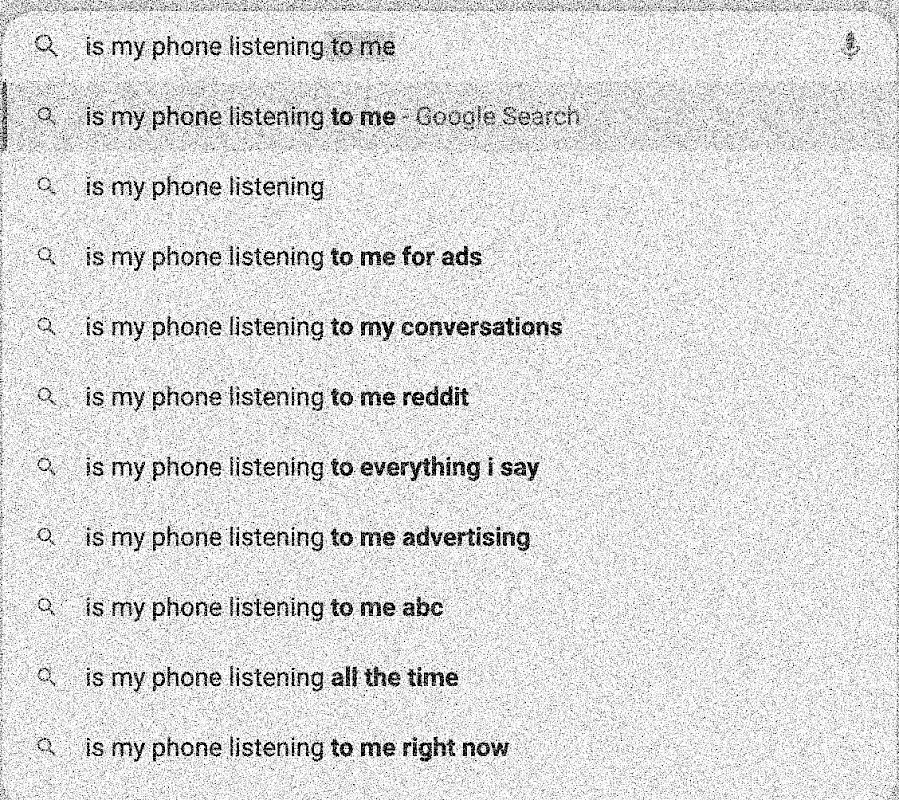
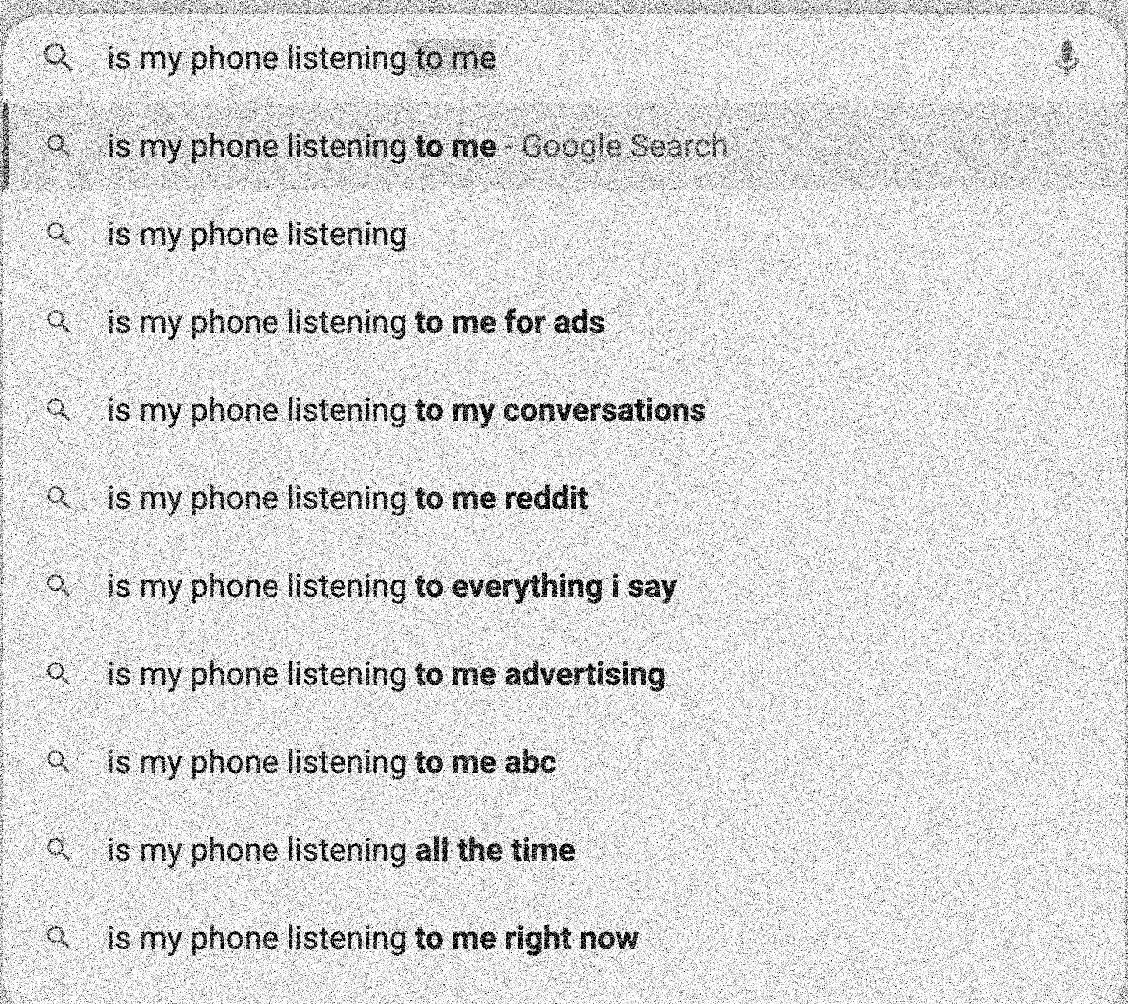
“Prophetai” is a workshop I initiated as part of the residency “Beyond Binaries”, which was commissioned by the curatorial collective Erinni and which took place in the neighbourhood of Torpignattara in the outskirts of Rome. I started from the assumption (or as I call it - the myth) that devices are able to listen to us, and therefore base their predictions solely on what our present already looks like. Picking up on age, social standing, gender and other identifiers, algorithms produce certain futures that weave themselves into one’s decision making. For this workshop, I worked heart-to-heart with a group of female-identifying locals from the neighbourhood, discovering together our perceptions of the future and its various narrations. In the first meeting, we performed an exercise called “The perfect future”. It consisted of a series of questions about an individual, imagined, “perfect” future, and all the steps necessary to bring it to reality. The key was to speak of it in positive terms, and using only the present tense, as if it’s an already determined future. For example:
-Define your “perfect future” in positive and using the present tense (ex: not I would like to do, but I do)
-Imagine that you have reached your goal overnight: tomorrow morning, how do you realise that the transformation has taken place?
Having visualised and, more importantly, “voiced” their perfect future, we parted. I had asked them to leave their devices aside during this short interview. At the end of the day, I asked each of them to observe what type of content and suggestions they would receive throughout that week, and to document as much as they could, to visualise an opposing future: the one produced by their digital activity. They gathered hundreds of screenshots of documentation and sent them to me; all these images printed together formed a huge wall of one collective idea: what does the Algorithm think of the womxn of Torpignattara neighbourhood? Here the Algorithm refers to the "myth" of omniscient devices. Each individual platform has different functions of algorithms, and here it is generalised as one concept, which takes the capital A becoming a singular sublimated idea. What the Algorithm showed us was a sad caricature of how womxn are perceived and constricted in society. Diets, corsets for a smaller waist, clothing, shoes, articles about abortion. The produced predictions are a representation of a cul-de-sac; predictions are based on the past, therefore they cannot imagine what they don’t see. The future then becomes an obelisk, and carved on it is the identity that was declared appropriate by a series of calculations and marketing strategies. What other possibilities, what other narrations? They get lost on some other obelisk, not accessible to us.


Harvesting the Tik Tok phenomena, we came together as a collective voice that, as a living organism, enters the device and reshapes the algorithmic landscapes. It was indeed a communal spell, narrating that “perfect future” that we wrote down in the first meeting. The aim was to bend our own desires and perceptions, already intertwined with those of the Algorithm, and try to disentangle them. Each of the participants spoke into their own devices and came together as a chorus, to influence their own and each other’s futures into something that is - if not better - at least different. Here is a perfect future from one of the participants:
I stopped working, I, my male companions, my female companions have the money to support ourselves, none of us feel this blackmail, it has freed us and we feel it has freed us from everything. I am not at all burdened by the presence of men who teach me things, if they exist I do not even know, they are somewhere and I have no idea. The relationships between my companions are not about power, we have reached the point that we do not reproduce the same systems of power that men have taught us. I sleep. (12)


Algorithm, Algorithm, will you listen to me if I tell you I refuse Capitalism?
This text concludes without a poignant point, but more as a word spoken into a valley, bouncing off of rocky walls, echoing its way back to you. I reference back to the quote at the beginning of this text, the words spoken by Old Torlino, a Navajo elder, before telling part of the creation story, which I came in contact with by reading The Spell of the Sensuous by David Abram.
[...] I am never out of sight.
Therefore I must tell the truth.
I hold my word tight to my breast. (13)
This Navajo incantation exists within a sentient cosmos in which everything is interconnected (“I am never out of sight”), and where words become real presences, entities to be cherished and to be used with care (“to my breast”). In many indigenous and/or oral cultures, the spoken word - in the form of prayers, incantations, songs - is the language of the more-than-human, is necessary to invoke kinship with entities that may seem inert to most. Furthermore, the spoken word is able to induce states, hypnotise, seduce, conjure; these qualities have been transported into the digital realm, where it seems to be needed the most. Being “never out of sight” of ancient times means having one’s soul always at stake, such is the interconnectedness (14). Similar is the condition of users in the age of Surveillance Capitalism, finding themselves directed, extracted, digested, policed, controlled: in some way, therefore, always at stake. Spelling - harvesting the power of oral knowledge and pronunciation - becomes a tool to gain an active role in this magic realm that feels so overpowering.
With this essay, my open invitation is to harvest the magic in words, in spelling, to invoke kinship with technology. When it’s not possible to truly break algorithmic governance, there is maybe some space for healing with it. Through this kinship, the possibilities are endless: collaboration, hacking, regeneration… Just say the word.
Footnotes
1. Kenneth Lincoln, “Native American Literatures,” in Smoothing the Ground: Essays on Native American Oral Literature, Brian Swann, ed., (Berkeley: University of California Press, 1983), p. 18.
2. A fioretto is a small, devotional vow to a certain saint. ‘To do a fioretto’means to make a prayer or a small sacrifice, in order for something else tohappen. In the case of my mother, who was devoted to the Virgin Mary, her fioretti always go to her.
3. Harvesting technological systems for witchcraft-adjacent practices.
4. Fabrizio M. Ferrari, Ernesto de Martino in Religion: The Crisis and the Presence, Key Thinkers in the Study of Religion Sheffield ; Oakville, CT:Equinox Pub, 2012.
5. Benjamin Wolman, compiler and editor. 1989. Dictionary of Behavioral Science. New York: Academic Press, second edition.
6. Silvia Federici, Caliban and the Witch - Women, the Body and Primitive Accumulation. Autonomedia, 2004
7. Flavia Dzodan, “Algorithm as Cartomancy”, in conversation for the format Schemas of Uncertainty, Amsterdam: Sandberg Instituut 2018.
8. Elena Esposito, from the lecture “Future and uncertainty in the digitalsociety” for Alexander von Humboldt Institute for Internet and Society (HIIG) and the German Federal Agency for Civic Education/bpb in the lecture series Making Sense of the Digital Society, March 12, 2018, Accessed November 29, 2020
9. Pythia (/ˈpɪθiə/;[1] Ancient Greek: Πυθία [pyːˈtʰíaː]) was the name of the high priestess of the Temple of Apollo at Delphi. She specifically served as its oracle and was known as the Oracle of Delphi. Her title was also historically glossed in English as the Pythoness.
10. Christopher A. Summers and others, An Audience of One: Behaviorally Targeted Ads as Implied Social Labels, Journal of Consumer Research, Volume 43, Issue 1, June 2016, Pages 156–178.
11. Eshun Kodwo. “Further Considerations on Afrofuturism.” CR: The NewCentennial Review 3, no. 2, 2003.
12. Prophetai, Courtesy of the artist.
13. Words spoken by Old Torlino, a Navajo elder, before telling part of the creation story, from David Abram, The Spell of the Sensuous: Perception and Language in a More-than-Human World (New York: Pantheon books, 1996).
14. Ernesto De Martino, Cesare Cases, and Gino Satta, Il Mondo magico: prolegomeni a una storia del magismo, 2019.
Bibliography
Abram, David. The Spell of the Sensuous: Perception and Language in a More-than-Human World. New York: Pantheon books, 1996.
Alexander, Leigh. “Why We Still Practice Superstitious Rituals With Our Technology.” Accessed January 11, 2021. https://www.vice.com/en/article/wnxpxm/why-we-still-practice-superstitious-rituals-with-our-technology.
De Martino, Ernesto, Cesare Cases, and Gino Satta. Il Mondo magico: prolegomeni a una storia del magismo, 2019.
Dzodan, Flavia. "Algorithm as Cartomancy”, in conversation for the format Schemas of Uncertainty, Amsterdam: Sandberg Instituut 2018.
Eshun, Kodwo. “Further Considerations on Afrofuturism.” CR: The NewCentennial Review 3, no. 2, 2003
Federici, Silvia. “Caliban and the Witch - Women, the Body and Primitive Accumulation”. Autonomedia, 2004;
Ferrari, Fabrizio M. Ernesto de Martino on Religion: The Crisis and the Presence. Key Thinkers in the Study of Religion. Sheffield ; Oakville, CT: Equinox Pub, 2012.
Lincoln, Kenneth. “Native American Literatures,” in Smoothing the Ground: Essays on Native American Oral Literature, Brian Swann, ed., (Berkeley: University of California Press, 1983), p. 18.
Bloomberg.com. “Amazon Workers Are Listening to What You Tell Alexa,” April 10, 2019. https://www.bloomberg.com/news/articles/2019-04-10/is-anyone-listening-to-you-on-alexa-a-global-team-reviews-audio.
“How Targeted Ads Change the Way We Think About Ourselves & Our Purchasing Decisions [New Research].” Accessed June 26, 2023. https://blog.hubspot.com/agency/targeted-ads-change-purchasing-research.
Summers, Christopher A., Robert W. Smith, and Rebecca Walker Reczek. “An Audience of One: Behaviorally Targeted Ads as Implied Social Labels.” Journal of Consumer Research 43, no. 1 (June 1, 2016): 156–78. doi:10.1093/jcr/ucw012.
Saliba, John A. “Magical Thinking in Contemporary Western Societies a Psychological View.” In Le Défi Magique, Volume 1 : Ésotérisme, Occultisme, Spiritisme, ed. François Laplantine and Jean-Baptiste Martin, 249–63. CRÉA. Lyon: Presses universitaires de Lyon, 2021. http://books.openedition.org/pul/10833.
Magellan Financial Group. “Targeted Online Ads Are the Success of ‘Surveillance Capitalism.’” Accessed June 26, 2023. https://www.magellangroup.com.au/insights/targeted-online-ads-are-the-success-of-surveillance-capitalism/.*
Cammerata, Erika. “GINEVRA PETROZZI. Incantesimi digitali e intimità collettività,” FORME UNICHE, November 11, 2022, http://formeuniche.org/ginevra-petrozzi/.
